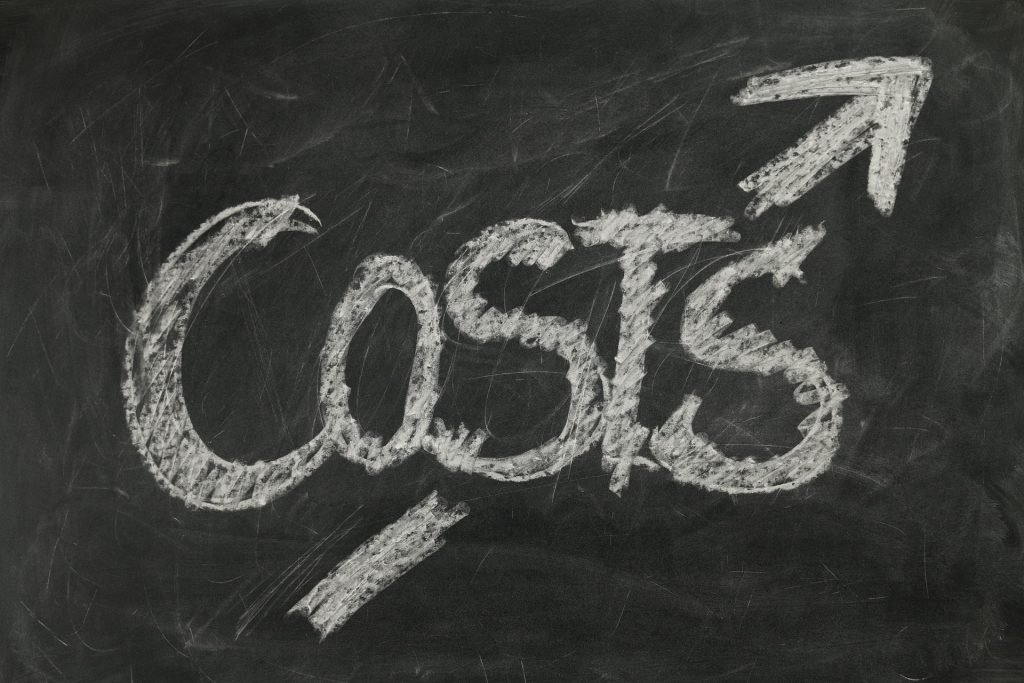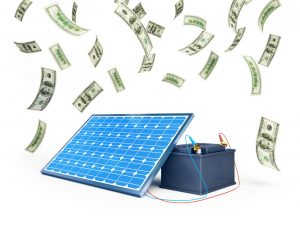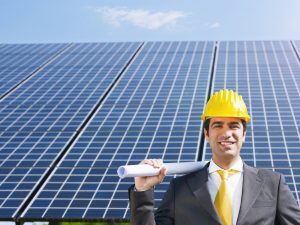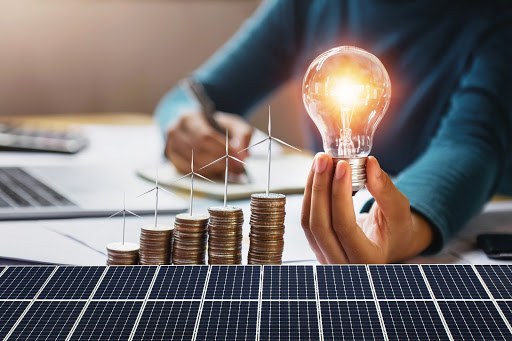Everyone who gets a utility bill knows that prices fluctuate from month to month. Utility companies change how much they charge due to taxes, the amount of energy used in their covered area, and a plethora of other factors (updating outdated power grid infrastructure, wildfires, etc.). Whatever the reason, it spells one thing for homeowners: rising costs! You may be looking into solar power specifically because of ever-increasing utility bills. But does solar power go up in cost over time, too? Or, will going solar exempt you from worrying about utility prices ever again? Let’s review solar power pricing so you can proceed with all the facts.
What is Net Metering and Why Does it Matter?
The term net metering is often bandied about in discussions of solar power advantages. Net metering is a basic billing principle for on-grid solar power systems. It’s the process that allows you to keep track of the power “credits” your system feeds into the grid during peak daylight hours. Then you use some of those credits at night and other times you import power from the grid.
But what does this have to do with the cost of solar power?
The net metering system tracks your total energy production. At the end of the year, some utility companies will even reimburse you for any extra credits you’ve built up. When your solar power system produces enough energy to cover your own usage, or produces extra, you’ll be protected from rising utility costs over the years. The most important factor is having a system designed that covers your ENTIRE use needs so you don’t end up paying the utility with a “True Up Bill” for power you had to borrow back from the utility — because you accidentally used more power than you produced with your home solar power system. When a solar power system is sized incorrectly, it will end up costing you MORE money. That’s why you choose the pros at Aurora Energy to design your system — so you know it will be sized right.
So No More Charges Ever?
The process of net metering ensures that as long as your system is producing enough power for your needs, you won’t be billed for additional usage charges. There are a couple of things that can happen over time that might lower your solar panels’ production rate.
The first is damage to the system or panels. If they get damaged, some of your panels could stop working. This loss of power output could cause you to use more power than you generate. The good news is that today’s high-quality solar panels are designed to withstand the harshest elements. In fact, at Aurora Energy, our panels come with an extensive 25-year warranty. So, if something does happen, we’ll be here to help!
The second way you may see a decrease in power production is a slow degradation over time. Over many years, solar panels’ output naturally decreases. But this is a very slow process. Good solar panels have an average life expectancy of 20-25 years. After that time they will continue to function, simply at a reduced rate that varies brand to brand. However, this is something our solar energy consultants try to factor in when designing your system.
So, while your energy production may change somewhat over time, you’ll never again be subject to massive rate hikes by your utility company! Are you ready to save money on powering your home? Contact our solar power experts today!




